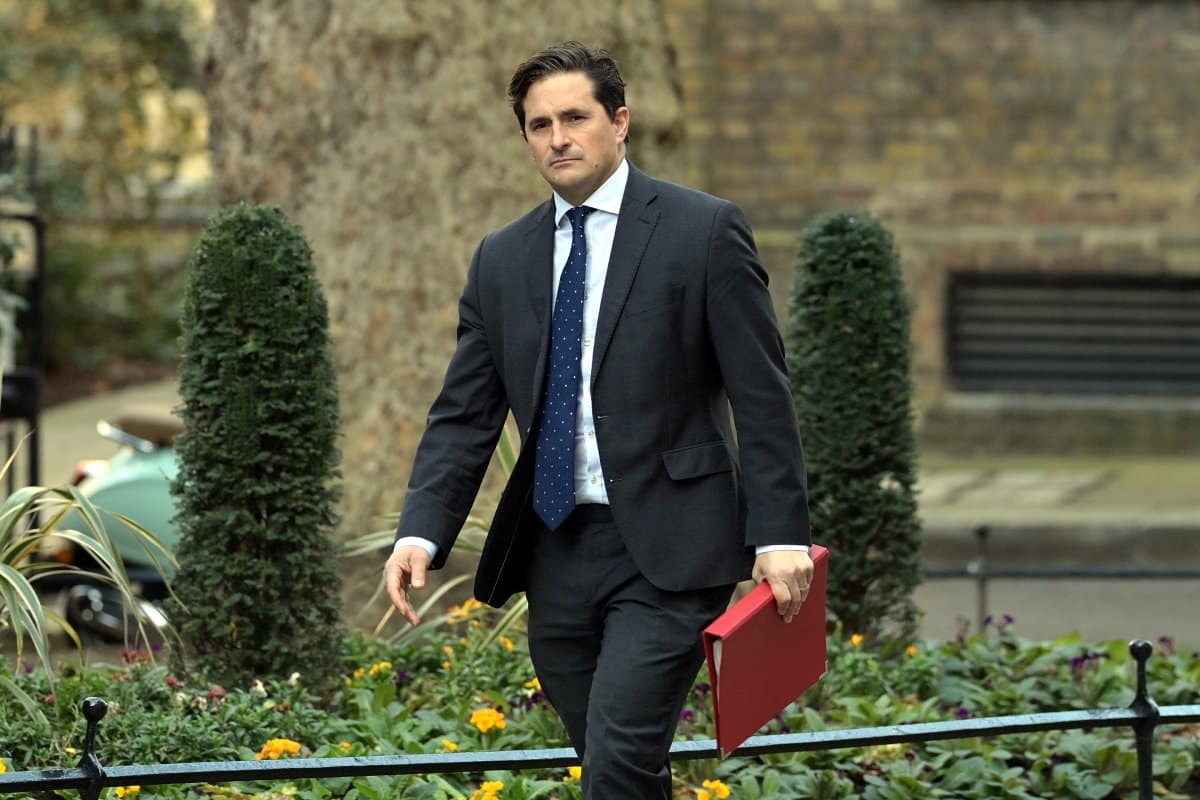Minister Johnny Mercer confronts a stark ultimatum from an Afghan inquiry, risking potential jail time as he refuses to disclose sources alleging British troop war crimes, igniting a debate on whistleblower protection and accountability. Here’s the full story.
Minister for Veterans Affairs
The Minister for Veterans Affairs, Johnny Mercer, has been thrust into a high-stakes legal showdown that has ignited controversy and raised serious questions about the role of whistleblowers in UK military circles.
Mercer, who was recently giving information to the public inquiry into the war in Afghanistan, has been given an ultimatum by the same inquiry: divulge the sources behind his claims of British troops’ involvement in war crimes in Afghanistan or potentially face imprisonment.
Accountability and Confidentiality
This demand for transparency, a rarity in British political life, has sparked a debate over the delicate balance between accountability, confidentiality, and the imperative to uncover the truth.
Mercer’s unprecedented predicament stems from his appearance before the public inquiry into allegations of war crimes committed by British troops in Afghanistan.
During this inquiry, Mercer insinuated his belief that members of the SAS were involved in numerous unlawful killings of Afghan civilians between 2010 and 2013.
However, despite acknowledging these allegations, Mercer steadfastly refused to disclose the identities of the “multiple officers” who purportedly shared this information with him during his tenure as a backbench MP. The standoff between Mercer and the inquiry chair, Lord Justice Haddon-Cave, has escalated significantly.
“Disappointing, Surprising and Completely Unacceptable”
Despite previous sustained pressure to divulge the information, Mercer has so far refused, leading Lord Justice Haddon-Cave to state that his decision to “refuse to answer legitimate questions … at a public inquiry” was “disappointing … surprising … and completely unacceptable.”
Haddon-Cave issued Mercer an ultimatum, compelling him to provide a witness statement containing the names of his sources by April 5th. Failure to comply could result in Mercer facing criminal charges, including potential imprisonment and fines.
Amid mounting pressure, Mercer has not relented, citing the need to protect the confidentiality of whistleblowers who approached him in confidence.
“Not Withholding the Names”
Gen Lord Dannatt, former chief of the general staff, echoed Mercer’s stance, stating, “Minister Mercer is not withholding the names of his sources from the inquiry because he believes there is a risk the information could be exposed, as the inquiry seems to think.”
He continued, “These whistleblowers came to Minister Mercer in confidence and have not given Minister Mercer permission to hand over their names, which is why he has not done so. The minister is working on getting their consent. Minister Mercer believes it is fundamentally important that he maintains the trust that whistleblowers can speak to MPs in confidence.”
Mercer has garnered support from individuals within the military community, including Robert Campbell, a former British soldier cleared of wrongdoing after enduring years of investigations. Campbell emphasised how alone he felt after he felt he had been “failed” by the chain of command.
“Speak to an MP”
He stated, “The last safety net for service personnel when they have nowhere left to turn is to speak to an MP.”
Serious Accusations
Despite the support, the implications of Mercer’s refusal to disclose his sources are profound. Haddon-Cave’s warning of potential imprisonment underscores just how seriously the inquiry is taking the serious accusations.
At the heart of Mercer’s dilemma lies the tension between transparency and whistleblower protection. While accountability and the pursuit of truth are paramount, so too is the need to safeguard individuals who come forward with sensitive information, especially when it concerns matters as serious as war crimes.
The inquiry released a statement which emphasised that any information that Mercer gave them would be protected by the “robust and sophisticated procedures” they had in place to ensure security.
“Which Side You Are Really On”
Judge Haddon-Cave warned the Minister, “You need to decide which side you are really on, Mr Mercer. Is it assisting the inquiry fully … and the public interest and the national interest in getting to the truth of these allegations quickly, for everyone’s sake, or being part of what is, in effect … a wall of silence—and this wall of silence is obstructing the inquiry and access to the truth?”
As the deadline approaches, Mercer faces a critical juncture. His decision to either comply with the inquiry’s demands or contest them through legal avenues will have far-reaching implications, both for the soldiers and for the pursuit of justice for victims of war crimes.
Whatever the outcome, Mercer faces a difficult decision, the outcome of which will have far reaching implications for the ideal of justice being done in the United Kingdom.
The post Risk Jail: Minister Under Pressure to Reveal His Sources in Afghan Inquiry first appeared on Edge Media.
Featured Image Credit: Shutterstock / Sean Aidan Calderbank.
Grant Gallacher is a seasoned writer with expertise in politics and impactful daily news. His work, deeply rooted in addressing issues that resonate with a wide audience, showcases an unwavering commitment to bringing forth the stories that matter. He is also known for satirical writing and stand up comedy.

